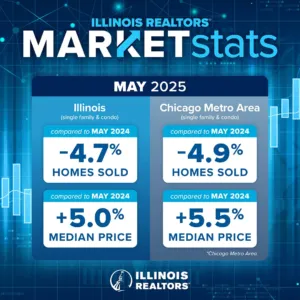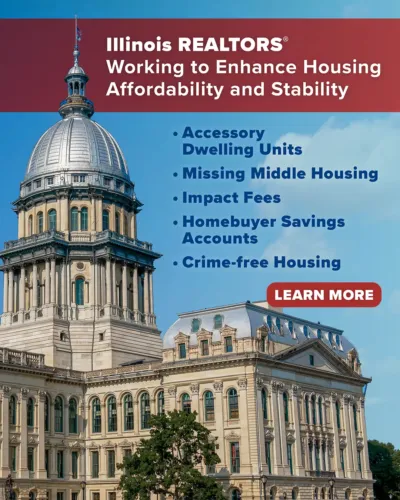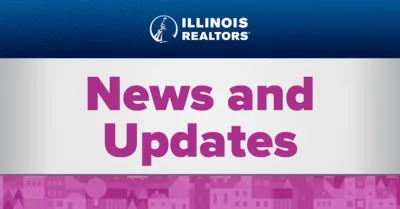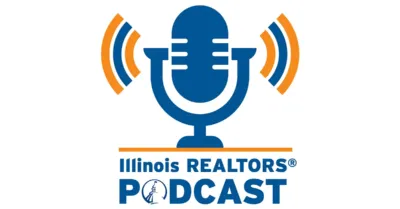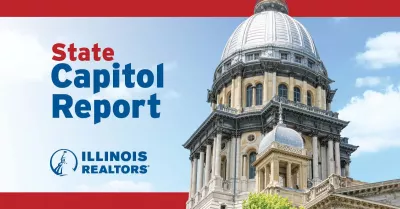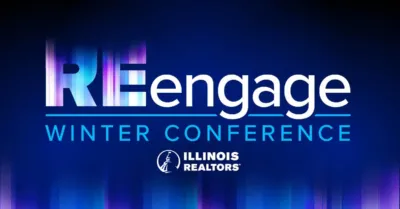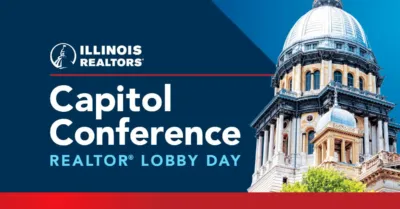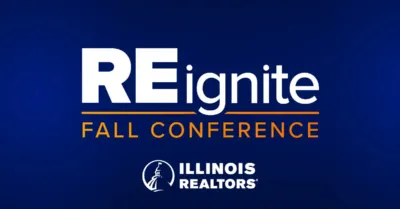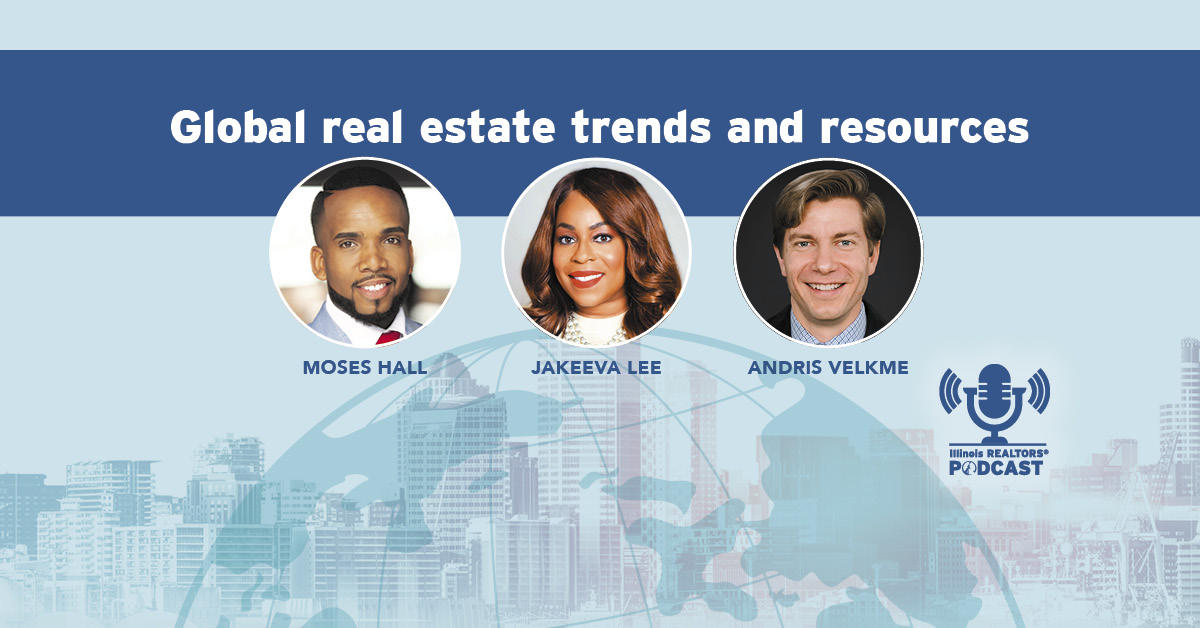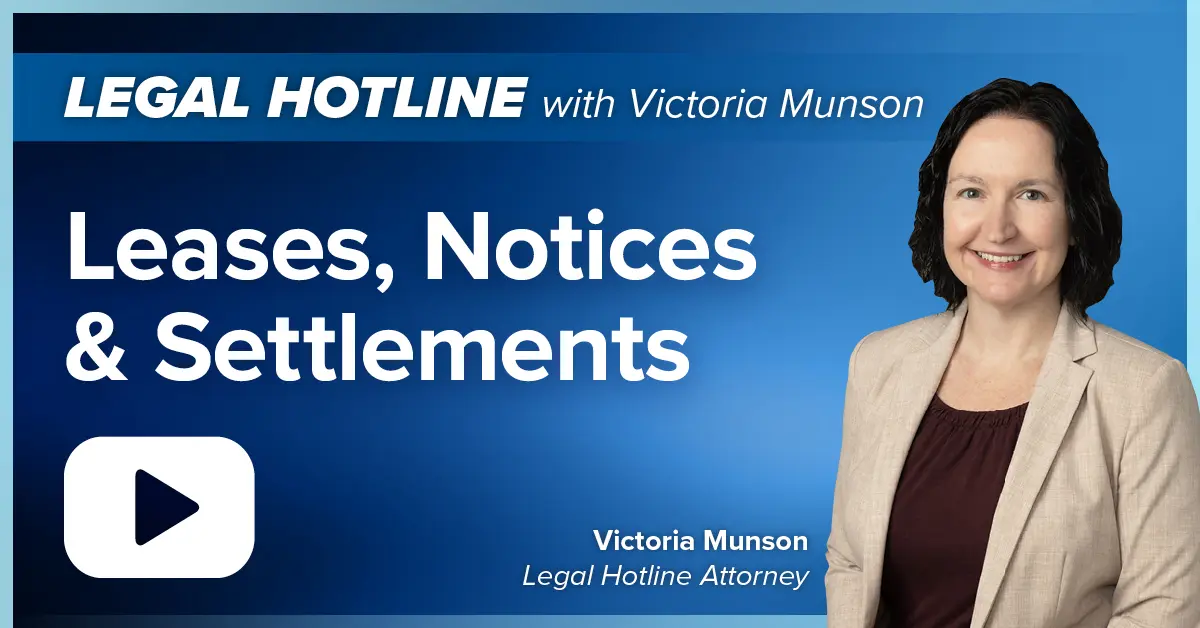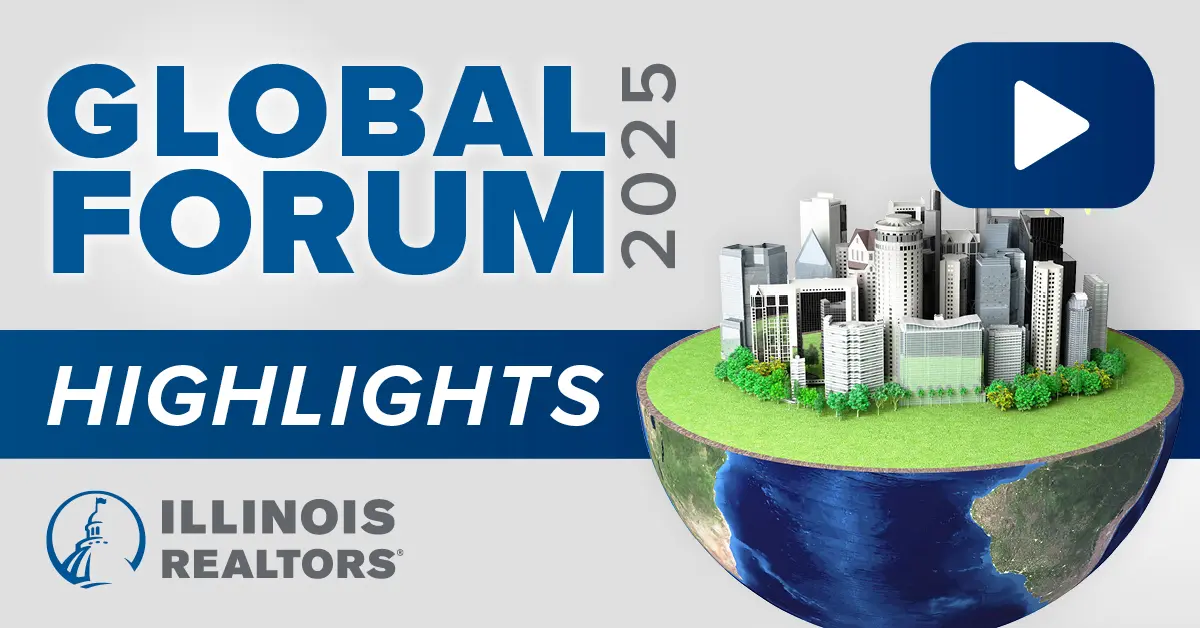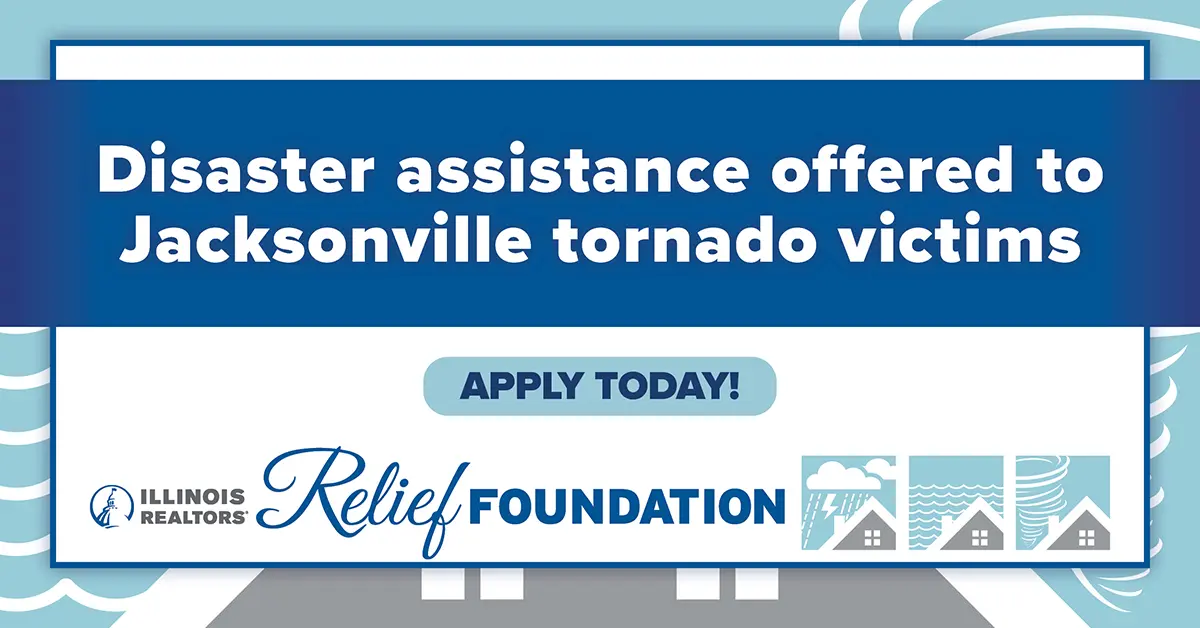In today’s Illinois REALTORS® podcast, members can learn about the benefits provided through the state association’s Global Forum.
Join Illinois REALTORS®’ 2021 Global Forum Chair Moses Hall, 2022 Chair Andy Velkme and Illinois REALTORS® Industry and Global Relations Manager Jakeeva Lee as they explain how they became involved in international real estate. Find out about some of the valuable online resources they recommend to interested members. The National Association of REALTORS® is one organization that conducts research and provides results to interested members, but it’s also cultivated great relationships with several other cooperating professional organizations.
In this discussion, the trio recaps some of the lessons learned during the COVID pandemic so far, and identifies commercial and residential international real estate trends that might continue in 2022.
Full Transcript:
Jeremy Goeckner: Hello, and welcome to the IR Weekly Podcast, keeping you up to date with all the latest news in the REALTOR® world. I’m Jeremy.
Kelli Jessup: And I’m Kelli.
Jeremy Goeckner: And on today’s episode, we’re welcoming Illinois REALTORS® 2021 Global Forum Chair Moses Hall, 2022 Chair Andy Velkme, me and Illinois REALTORS® Industry and Global Relations Manager Jakeeva Lee.
Kelli Jessup: Moses is the founder and CEO of Mohall Commercial and Urban Development in Chicago, where he specializes in investment property, acquisitions, and purchases. He is a member of the NAR board of directors, the 2022 NAR Commercial Committee, REALTOR® Magazine’s 2019, 30 under 30 class and the 2021 chair of Illinois REALTORS® commercial economic issues and trends forum and a graduate of the Project Real Estate Associate Program. Moses is also the state legislative contact to State Rep. Marcus Evans of Chicago and chaired Illinois REALTORS® 2021 Global Business Council.
Jeremy Goeckner: I’m just curious, Moses, is there something you haven’t done.
Kelli Jessup: Right?
Jeremy Goeckner: Serious? Cause that is a laundry list, but let’s keep going here because there’s other people out here too. Andy Velkme is a senior vice president of Caton Commercial Real Estate Group in Naperville and is the 2022 President of the Northern Illinois Commercial Association of REALTORS®. He is a certified international property specialist and served on the NAR Global Alliances Advisory Board. Andy is the Illinois REALTORS® consulate liaison to Latvia and an alum of the 2017 Leadership Development Program and the current chair of Illinois REALTORS® Global Forum. Jeez Andy, I should have read yours too. My God. There’s so accomplished people here. Kelli does Jakeeva have a pretty crazy bio here too? I think she does.
Kelli Jessup: Last, but certainly not least. Jakeeva has served as the Illinois REALTORS® Industry and Global Relations Manager since January of 2019, while also serving the Chicago Association of REALTORS® (CAR) as its external affairs manager. She’s been recognized with a 2020 CAR President’s Award, the Association Forum’s 40 under 40 Award and the Alexander Chaparro Leadership Award from the National Association of Hispanic Real Estate Professionals.
Jeremy Goeckner: We have accomplished people here today. Moses, Andy, Jakeeva, thank you for being here, lordy.
Kelli Jessup: Welcome.
Jakeeva Lee: It’s a pleasure.
Andris Velkme: Yeah, thank you. It’s great to be here.
Jeremy Goeckner: Wow. We have a lot to talk about here and I cannot wait for everyone to hear all the stuff that you have to say here. So, let’s just dive right in. So earlier this year, the three of you put together the Global Forum at the Illinois REALTORS® Fall Business Meetings, Moses and Andy hosted a panel discussion about trends in international real estate. So, although much of the conversation had to do with residential trends. Let’s talk a little bit about the commercial sector too here. So, Moses, can you start by telling us how you became involved in real estate and why you specifically have a passion for commercial real estate?
Moses Hall: Well, one of the reasons that I got involved into real estate was that I wanted to be the change in my community. I saw so many opportunities originally hailing from New York City. I saw how, you know, my parents was able to achieve the American Dream. And we started off in a rundown apartment building with mold, rats and all different types of things. My parents were able to save up a down payment on a home and we were able to move to the suburbs of New York and we were able to raise a family there. Seeing how my parents were able to provide stability for me and my sister, it really started to pique my interest because I believe my parents acquired their home for about 125,000- $130,000 back in 1994. I believe now it is appraised roughly around $700,000. So, kind of seeing that really piqued my interest in helping underserved communities achieve these same type of things. I realized that you not only have to have the residential component, but you also have to have the commercial component as well because the community that we moved to had grocery stores, they had shopping centers, they had other things that most people look for when you’re moving to a neighborhood and community. And so, I thought, why not marry the two between residential and commercial? And so that’s what really piqued my interest in helping revitalize underserved and historically excluded communities.
Jeremy Goeckner: That is just incredible. It’s an incredible story there, but Andy here, you actually hold citizenship in the U.S and the European Union. So, making the rest of us ordinary citizens look bad here, man. But can you, can you talk to me a little bit about how you develop international contacts and how do you incorporate cultural and regional differences into your business strategies?
Andris Velkme: Yeah, definitely. So, I’m a first generation American. My parents were born in Latvia, and I was born here in Chicagoland, but I’ve been part of the Latvian community. You know since my birth going to Latvian schools on Saturday, speak the language to my kids. And that just got me really kind of involved in, you know, cultural, multicultural events. I brought that into the business world as well previously in my market research career when I was part of a global research solutions company and then transitioned to commercial real estate and kept really kind of the focus on the global aspect. I think the biggest way for me to really build that global network outside of my, you know, community of friends and family, which were very much from the Latvian side, was to start participating in all other sorts of global events.
Andris Velkme: You know, at first, I co-founded the Latvian Chamber of Commerce with a few other friends and then we started attending European Chamber of Commerce events where a bunch of different chambers got together realized how effective that was in meeting people. Then at CAR I chaired the Commercial Global Business Network and there we started putting and curating events together panels about inbound global real estate, the differences between global and local and, and participated in conferences presented. And that really kind of helped accelerate it. And then on top of that was just really continuing the momentum of going to and participating in as many events and association groups as I could. So, you know, I joined the Illinois REALTORS® Global Council as the conciliate liaison to Latvia. And while that, you know, focuses on Latvia as a title, you’re in the same room with the constant liaisons from a lot of different nations. And that really then brought more of attention on things going on in different countries around the world and got me interested to the point of going to conferences in Europe. So, I started attending MIPIM in Cannes. Moses has attended that as well. Great time there, it’s obviously a beautiful place, but you know, when you go to a conference like that and you’re one of 500 or so maybe brokers from America going to a conference of 25,000 people from around the world, the amount of contacts you can meet is absolutely amazing. You know, on a daily basis, I met dozens of contacts that were fantastic and actually led to, you know, the majority of my clients that I’ve worked with over the last three to five years came from those types of settings. It’s just really going out there, meeting people, explaining what you’re about and, and really presenting yourself as a solution for their needs in the states.
So, you know, from that, I worked with some companies from Berlin, Germany, from France, from the UK. So, you know, from all over and it’s been great, it’s been exciting. And it’s really just, it’s about, you know, going back to the initial thing, just the participation, getting yourself out there, participating in global events, searching them out and, you know, IR has great global events, NAR does as well. They supplement and, you know, they, they help people go to these conferences with the stipends they’ve put together in the past, which really helps, you know, make that decision easier. And then once you start doing it, I think it just really builds momentum and you just want to continue, and it just becomes a part of your everyday business.
And then to the second part of that question about, you know, how I incorporate was that, you know, kind of, or the nuances of different cultures and that’s something you kind of learn along the way, you know, there’s great resources that kind of help you understand different ways of doing business in different countries. But I guess an easy way to look at it from an experience standpoint is you compare MIPIM to Expo Real to conferences I’ve been to, you know, MIPIM being in France is a very, you know, France being a very social country where people get together and they socialize and have some wine and cheese and get to know you a little bit better and then figure out later how you’re going to do business. But at least you establish that relationship on the front end Expo Real in Munich is interestingly different. It’s got more of that German mentality, which is a little bit more analytic, a little bit more let’s get it done. And there it’s like, OK, quick introduction. What do you do? You know, let’s, how can we work together versus like, let’s chat about our friends and family for a half an hour over glass of wine. You know, it’s much more, you know, business focused right off the bat, but I found that interesting, and it’s hard to kind of, you know, really grasp at if you just read it in a book, but once you start meeting people in different countries around the world and working with them you really do learn how they just have a different approach to business, to relationship building and you go from there.
Jeremy Goekner: Absolutely, well I always prefer a wine and cheese component to my business, given the choice there, but believe Kelli has our next question about something that none of us have experienced over the last two years, a pandemic.
Kelli Jessup: So, well, we want to go back to the global forum Jeremy mentioned earlier in the podcast, which kudos to you guys for putting that on, it was a great event, very informative. So great job on that. But some of the panelists pointed out COVID had a huge impact on international real estate during the past year or so. Did you notice more differences or similarities between those residential and commercial trends?
Moses Hall: I know for me in my business practice, I definitely had an uptick of Canadian buyers looking in the Chicago market, which was on par with the data reported our workshop. So, they had a very strong appetite for multifamily commercial and also industrial. So, I definitely had a couple of offers on properties that I was listing right in the smack dead middle of the pandemic from Canadian buyers. And so like I said, it was on par with the data that was presented that Canadian buyers kind of took a spot over Chinese buyers that were normally top buyers within the U.S. So, I can see that in my business. I don’t know about you, Andy, what you saw globally and what investors had an appetite for.
Andris Velkme: Yeah. What I saw was interesting, I guess it was kind of two or threefold at first, you know, there clearly was a slowdown in the commercial sector. People were waiting to understand what was going on with COVID in the inception with March of 2020, you know, becoming very conservative with decision making, and then it kind of changed to a point of just kind of waiting to wanting to do a little bit more looking closer at new opportunities, whether it was developments in the states. At the time I was working with a company from Berlin and a company from London and similar experiences with both, but what ended up really slowing things down was the fact that they couldn’t actually come to the states because oftentimes, you know, we do a lot of the preliminary work from afar, but then the final decisions were made as they actually came to visit for a week and you know, actually saw the tangible properties and that really kind of changed things and really slowed things down. Plus, there was that triple, that trick, the effect when that when offices cleared out and then retail downtown cleared out and then, you know, the multifamily in the city, at least at first slowed down and everybody started not everybody, but a large group of people started looking to the suburbs, which then drove suburban house prices through the roof.
That really helped our residential REALTORS® and you know, they couldn’t even keep up enough inventory to get enough out there for people. And then people were expanding their landscaping, putting in pools, everything like that became really hard to do. But you know, that slowed down, obviously the commercial activity in the city and the urban centers, you know, that’s luckily come back and obviously, you know, the appetite that was out there has increased because of that period of time when people couldn’t transact or couldn’t come to the country. So I feel like it’s going to really, you know, really kind of accelerate over the next year, you know, knock on wood as long as we keep things under control, at least to, you know, the best of our ability from the pandemic standpoint. But, yeah, it’s been an interesting ride from that standpoint, but, and the last thing I want to do add is I was talking to somebody yesterday at an event that I went to, and they mentioned they’ve had an incredible year in the office sector this year, which surprised me. And what they explained was some of their buyers or leases were very patient and they understood at the front end that, you know, it was a risky time to make long term decisions, but now there’s some great deals to be had. So, you know, some people are signing leases with more flexibility, with better rates and more build out allowances than they ever imagined before. And their patience kind of paid off because right now they’re getting some great deals done.
Moses Hall: And also want to add to Andy’s point in terms of the residential boom, because housing prices jumped very quickly. It also made people because it was competitive bids. They also decided to rent longer because it was like 20 bids on one property. And so, people couldn’t find housing. And so, they decided to renew their lease or continue to rent at other places which drove up multifamily prices. Because like you said, the rent revenue was coming in at a higher price. So, we see rent growth for new leases signed. We also see rent growth for those that were renewing their current leases. So that increased the appetite of global investors from the multifamily sector. And then to Andy’s point about office, I did see a bump in suburban office appetite as well. So, like you said, we’re kind of seeing the same things in both of our businesses.
Andris Velkme: Yeah. And to kind of add one thing that, what Moses said too, from that suburban standpoint, it seems like a lot of larger companies are looking to do kind of a hub and spoke model. Will they keep their HQs in downtown areas, but then looking to whether do it, you know, traditionally or with flex spaces, but creating some smaller satellite offices close to where people live now that like the nine to five, five day work weeks, a thing of the past are trying to figure out ways to still get people together, to collaborate and get together without having to do the commute all the time from their, you know, newly bought suburban homes back into the city. But then at the same time, there’s still that appetite in the city for kind of the younger or, you know, job changers, the people who are really motivated to be part of the action coming back now. And you’ve seen that those rent increases that Moses alluded to happening as well in the urban areas. And, and I think actually right now the suburban and urban multifamily rents are higher than they were pre pandemic. So, it’s been interesting.
Jeremy Goeckner: Absolutely. Jakeeva, are you noticing the same thing on the residential side?
Jakeeva Lee: Yeah, sure. On the residential side is a little bit more difficult or different on the commercial side to Andy’s point, since investors weren’t able to travel to the US last year, we did see a dip in sales volume. And as Moses pointed out, typically we have Chinese investors that are the number one top foreign buyer coming into the US buying billions of dollars of residential real estate, but they couldn’t travel here. We couldn’t travel there and that took a dip. So, to Moses’ point, we did see a bump in Canadian buyers and also Mexico. They both bumped China in 2020. And then also for on the Illinois side, we did see a jump from about 3 percent of those foreign buyers coming in from Mexico, China, and India. A lot of what we’re speaking about today, it’s interesting how real estate and the way real estate works, where commercial drives real residential and residential drives commercial. And so, for Illinois, we are in a unique position where we have a world class city in Chicago. But if you go down state, we have a lot of farmland. We have a lot of industrial land; we lot of opportunities to build new construction. And so, you see that a lot more and that makes foreign buyers more attractive to our markets. We just need to get those new construction developments happening a little bit more frequently, but as far as residential sales, we did see a dip about 27 percent sales volume below than what we usually target pre pandemic. We are encouraged that the borders are semi open. It seems like one door in one door, out, one foot in one foot out as time goes on, but we are encouraged that foreign buyers are continuing to be attractive to the U.S. market because we are a stable economy. We are stable when it comes to real estate on the commercial side and residential side, there’s a multitude of opportunities for foreigners to purchase. The only thing that we always try to advise our members to advise their clients is always be mindful about the tax law, because you’re going to get taxed on properties here in the US as well as in your home country. So do your due diligence, make sure that you are working with the account team, professional learning, also learning the cultural nuances for the areas that you would like to purchase in. And I, I think you’ll be all right.
Kelli Jessup: Absolutely. That’s all really interesting. So, during that form, I believe there was several resources cited to help REALTORS® navigate international transactions abroad. Can you give us some of those examples?
Andris Velkme: Sure. I can start. The 2021 commercial real estate international business trends and the 2020 state economic data for engaging in international estate are two resources that can be found on NAR’s website from the NAR research group. So those are great.
Jakeeva Lee: NAR has a lot of great resources and research reports that they produce throughout the year. I encourage you to just even go on the NAR website, just Google research, or I believe they have a dropdown tab for all their research data reports. The information on the residential real estate is found in the international transactions, US residential real estate report, try saying that four or five times back-to-back, but you will find a lot of information and also informs you on who to target. If you’re trying to target a specific market, you’ll see exactly who’s interested in U.S. real estate. And then you’ll also be able to understand the client’s mindset a little bit better. What’s attracting them to Illinois and vice versa.
Andris Velkme: Yeah. And then also the state department has something that’s pretty amazing. The US state department now develops an annual investment climate statement that assesses business climates for countries abroad and their economies as well. I think they do it for 170 countries now, which is very impressive. And then the IHC global and the center for international private enterprise offers the international property market scorecard, which is also a great way to understand a little bit better from, with the data perspective on, on what you might be looking at.
Jakeeva Lee: Illinois is one of the lucky ones where we have over 80 consulate offices. In the state, primarily in the Chicagoland area. So, if you’re interested in a specific country trying to learn more about that market, I encourage you to Google all the consulate offices. There’s a full list I believe is on the city of Chicago for easy access and city of Chicago webpage. Or you can just Google, you will find some links that would take you directly to those consulate offices. And more often than not, you will find that they’re very excited to hear from a real estate broker or REALTOR® because they always want to bring that investment back into their country. So, I encourage you to use the resources that are available on those consulate websites.
Jeremy Goeckner: Yeah, absolutely though. And just a bevy of tools here, just all over the place for people to help understand this stuff. But specifically, though, you guys were all, you know, the global forum at the fall business meetings, you know, and I just want to call that out that that is available on the Illinois REALTORS® Vimeo page. The entire session is now on the Vimeo page. If anybody wants to see it. But talk to me about the global forum guys. Like how exactly does it help members understand international commercial real day better? Like, like what, what is the pitch, I guess, to the global forum? Why should, why should they be paying attention to the global forum?
Jakeeva Lee: So, the global forum is a opportunity for those that are global REALTORS® and those that are interested in going global to learn tools, education, and provide a network work of individuals that are in already in that space. You learn a lot by networking with your peers. And so, at the forum, we try to offer those opportunities throughout the year. We do have a global web page that has a plethora of resources that you can reference. We offer two forum, educational events per year. The first one I believe is going to be in February and we’ll also do one at the fall business meetings this past year in 2021, we did offer like Jeremy mentioned, we had a forum. Even we brought in some data from NAR Lisa who’s the manager over there. We brought in Bill Endsley, who’s the president of the OPEC. And we brought in Sharon from the Canadian real estate association. They provided excellent information for you to grow your global business. There’s a line that we always say global is local. And so, when you get a true understanding of how global impacts your business, whether you are a global agent or not, like I mentioned earlier, we all are interconnected in this wonderful world of real estate. So, you do want to get a better grasp to better serve your clients because you’re going to miss out on business at the end of the day if you do. I do encourage with Andy’s leadership. We have a few exciting things that are coming up in 2022, some new initiatives that we’re trying to target. There will be more to come. I don’t know, Andy, if you want to just highlight some of the things that we’re trying to do next year under your leadership, or you want to keep it a secret. But we are excited to provide more of a research resource for Illinois REALTORS®. So, there’s a lot more that will be coming down your pathway.
Jeremy Goeckner: Andy, yeah. She put you on the spot, man. Are we going to, are we going to say, oh man, these are big secrets here. We got to some journalism and get these out.
Andris Velkme: We have a lot in store that I think everybody who wants to learn more about global or is already in the global sphere will be happy you with what they see. But yeah, to be honest, they are a little bit under production right now, but yeah, you know, you always got to keep waiting for more too, right. So maybe we’ll announce I’m on the next podcast, but yeah.
Jeremy Goeckner: We’ll have to come back. We’ll hide our journalistic intentions here and we’ll, we’ll leave it there.
Jakeeva Lee: Part two.
Kelli Jessup: Absolutely. Well, that’s some exciting stuff. You guys have covered a lot so far in this podcast and we don’t want to take too much of your time. So, to wrap it up, what advice would you give REALTORS® who want to expand their commercial real estate business to a global market?
Moses Hall: I think it’s important to get involved in this industry, whether it’s holding leadership positions, whether it’s attending conferences like MIPIM, whether it’s getting involved with our industry partners, such as AREAA, you want to go to where you want to do business at. So, if you want to do more business with Chinese investors, you need to get involved into local investment groups. Whether you want to do more business in Canada, you want to get involved with groups that do business in Canada. I strongly encourage you to make the investment to attend some of these international conferences here you can meet everybody at one spot. Like I said, MIPIM has been such a benefit to my business and growing and learning about different global markets. So, I strongly encourage those that are interested in getting involved in building a global business is to go to where you want to build at.
Andris Velkme: And then I’ll add to that too. I think one key point is not to be intimidated. You know, global is local and local is global. And what I mean by that is, you know, there’s a lot of international folks who live here in Illinois and do business here in Illinois. And if you’re actually working with either a foreign national or, or anybody who, you know, isn’t from here, you’re doing global business already. So, keep that in mind and then let that kind of help you grow and get more of a larger network as well. And then, you know, Moses did touch upon some great events to attend and also a little education always helps and, you know, see the CIPS certified internationally property specialist accreditation that NAR has in their classes around that are fantastic. You know, not only will you learn some of the nuances and the differences in how business is done, but you’ll also get basically an alumni group of people that you do the class together with. And then you become part of this network that you can really lean on to find the people you need to conduct business, where you need them. You know, whether that is other REALTORS® or that’s, you know, bankers or foreign money exchange folks or relocation specialists, you really need to have that network built. And once you start participating, you know, that network really kind of speeds up the, you know, the process. So that’s what I would recommend.
Jakeeva Lee: Now I’ll give a shout out to the global councils at our local associations across the state. So, Chicago association of REALTORS®, we have a global council, pretty active offering educational events, main street, organizational REALTORS® have a very robust global council, more than welcoming to attend their events. Even if you’re not a main street member, they have great content. And the same thing with NICAR has a global business council. So as Moses and Andy pointed out, getting involved locally, these networks are available for you to participate in, even if you’re not a member of those local associations. I know at CAR we more than welcome Mainstreet, NICAR and Heartland, all these other local associations to attend our global event. And I’m sure the same thing is vice versa. So, find a network and get involved.
Jeremy Goeckner: Absolutely guys, that is some amazing advice. And I love that you just said that, you know, you don’t even have to be a member to kind of perspective this stuff out and to see if maybe it’s there. So, I don’t know, in the words of Walt Whitman as told by Ted lasso, be curious, not judgmental. Just try it on. Let’s see what happens here, guys, but seriously Jakeeva, Andy, Moses. Thank you so much for being here. This was so much fun, so much incredible information that you gave out to our members here. So please come on back and join us anytime, whenever you want open invitation. Thank you guys for coming and joining us today.
Jeremy Goeckner: All right, well, REALTORS®, we also want to let you know that if you want to learn more, you can visit the Illinois REALTORS® website and check out the global business council page under REALTOR® communities tab.
Kelli Jessup: And that’s it for this week’s IR podcast. Thank you all for listening and as always give us a rating review on your podcast. And if you want more content, simply search Illinois REALTORS® on your favorite social media app. We’ll see you next week.

